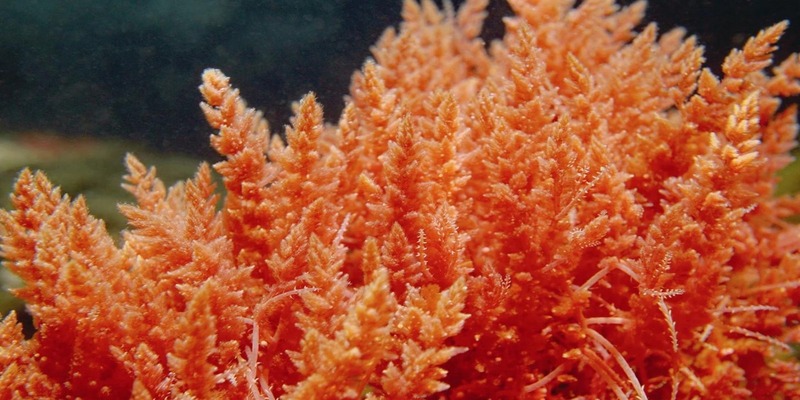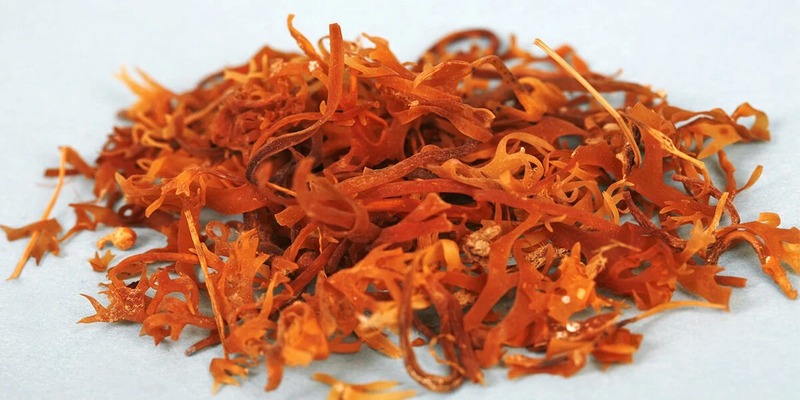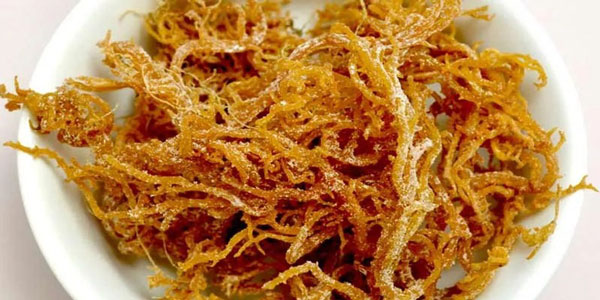Studies have shown that sea moss, a kind of seaweed, may deliver minerals to the thyroid, improve heart health, and more, and nutritionist Kerry Torrens details these and other advantages. Kerry Torrens, a registered dietitian, investigates sea moss, revealing its identity, distribution, and potential health advantages.
Precisely What Does Sea Moss Mean?

Chondrus crispus is a kind of edible seaweed that may be found along the coasts of both Europe and North America. In the same vein as other seaweeds, it's an excellent food choice for obtaining some of the more difficult-to-find nutrients.
Most cooks will be familiar with sea moss, or carrageenan, for its primary culinary usage as a thickening ingredient. Because of its effectiveness as an emulsifier and its suitability for vegans, carrageenan is often utilized in the food industry. However, sea moss is more commonly found in supplement form than as a cooking component in the average American home.
Though its name suggests a green hue, sea moss comes in a rainbow of hues, from green to yellow, red, brown, and even black. However, red moss, sometimes known as Irish moss, is the most frequent.
Five Ways In Which Sea Moss Improves Health
May Help Thyroid Health
Thyroid hormones have a role in growth, metabolism, reproduction, and tissue repair. Several substances are required, including iodine and the amino acid tyrosine, both stored in the thyroid. Seaweed contains both of these nutrients. However, the amounts might vary widely depending on the kind of seaweed and other factors, including how it was stored and prepared.
May Aid Digestion
Polysaccharides, a kind of fiber found in seaweed, are indigestible by humans but are a source of fuel for the good bacteria in our digestive tract. In this approach, we may provide power for the gut bacteria, promoting the germs that give the most advantages to humans.
These microorganisms in the intestines contribute to our overall health by, among other things, producing short-chain fatty acids.
Immune-Boosting
Seaweed, such as sea moss, has developed an admirable defense mechanism to withstand the severe circumstances of the coastal seas. Because of their high phytochemical content, eating them has been linked to enhanced immunological regulation and a more robust immune response.
It May Lower Blood Sugar
Incorporating seaweed into a healthy, balanced diet has been shown to help control blood sugar levels and minimize the chance of developing type 2 diabetes. Compounds like carotenoid and fucoxanthin contribute to improved insulin sensitivity and glucose regulation. Seaweed's high fiber content also contributes to a more leisurely digestive process.
It May Help Heart Health
Omega-3 fatty acids are crucial to health and are especially important for the heart and circulatory system, and seaweed, including sea moss, is one of the most significant plant sources of these necessary nutrients.
Seaweed has been linked to lowering the risk of heart disease due to its potential to enhance cholesterol balance and function as a blood thinner.
Some research look at the impacts of sea moss, while many others employ other types of seaweed. Because of this, we need additional studies to determine the precise health impacts of consuming sea moss by humans.
Is Sea Moss Harmless?

Due to its high iodine content, seaweed, including sea moss, is a valuable addition to the diets of vegetarians and vegans. In moderation, seaweed's iodine concentration can support healthy thyroid function; however, an excess of this nutrient might have the opposite effect.
Because of this, the British Dietetic Association advises limiting seaweed consumption to once per week, much more so when expecting. Your doctor or dietician may advise you to keep an eye on your intake of vitamin K-rich foods like seaweed if you're on blood-thinning medications like warfarin.
Seaweed is an excellent source of potassium, another essential nutrient. Seaweed, which is high in potassium, should be used with caution by those taking drugs that increase blood potassium levels.
Does Anybody Recommend Using Sea Moss Supplements?
Although 4 grams of sea moss per day was proven safe in one research, those with preexisting conditions like hyperthyroidism or hypothyroidism should still see their doctor before starting treatment. It can be purchased in its natural state or processed into several different dietary supplements, such as:
- Capsules
- Gels
- Gummies
- Lotions
- Powders
It's up to you to decide which interpretation to follow. As long as you follow the correct dose guidelines, Czerwony explains, "it's basically about whatever your preference is." You can't out-supplement a lousy diet, so keep that in mind whether you're only taking sea moss pills or are piling up on various kinds.
Czerwony argues that while sea moss may provide some health advantages, the most important thing is to eat a healthy, balanced diet. The phrase "Don't rely on supplements" comes to mind.




